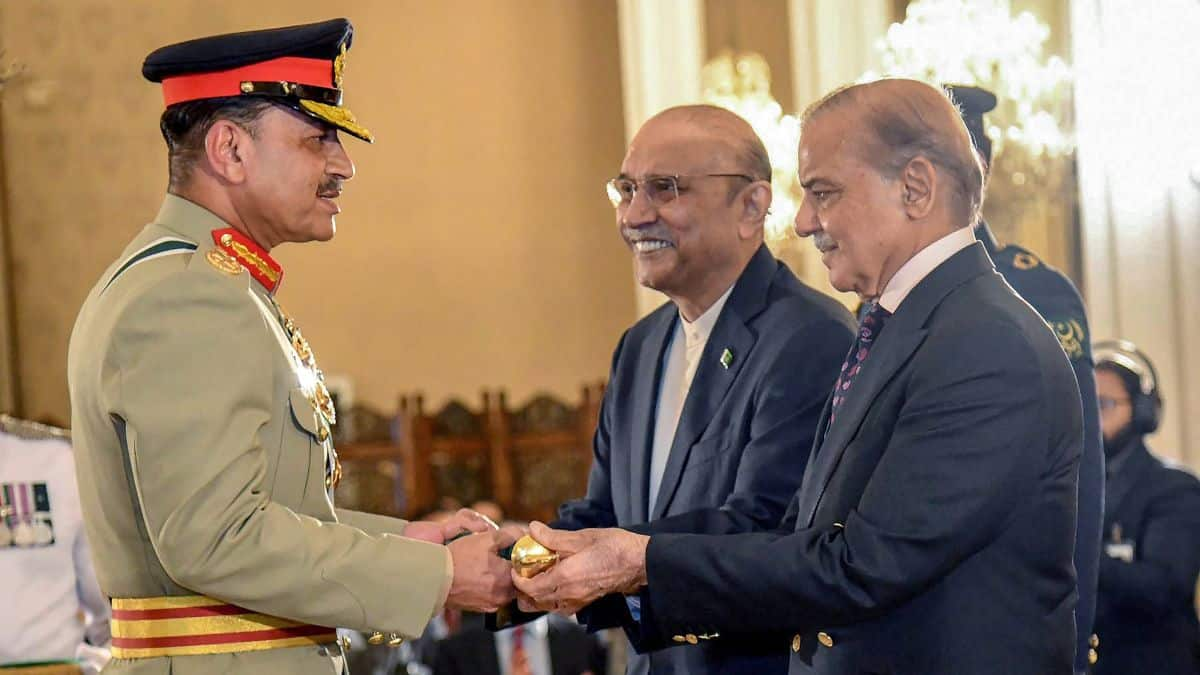Pakistan’s 27th amendment, which institutionalises the army chief as the country’s most powerful person, has progressed after parliamentary committees’ approval. It was tabled in the parliament over the weekend.
A joint sitting of Pakistani parliament’s law and justice committees on Sunday approved the 27th Amendment. Their report will be tabled on Monday.
The 27th Amendment institutionalises the role of Pakistan Army chief as the country’s most powerful person and instals him as the country’s czar.
In a statement after the committees’ meeting, Deputy Prime Minister Ishaq Dar said that all key amendments, including changes to Article 243 of the Constitution, had been approved. He said that the report of the committees would be tabled before the Senate on Monday.
Article 243 concerns the civil-military relations in Pakistan and the command-and-control structure of the country’s armed forces. Proposed changes equate service chiefs with the president in terms of immunity from prosecution. They also effectively hand appointment powers to the Pakistani army chief.
Under proposed changes, the army chief shall also concurrently serve as the Chief of the Defense Forces — the supreme commander overseeing all three military services. The change also institutionalises the army’s primacy over other armed forces’ branches.
While Dar said that the 27th Amendment passed amicably, leaders of PTI, MWM, PKMAP, and Sunni Ittehad Council did not attend the meeting, according to Dawn.
These leaders have also boycotted the upcoming parliamentary sessions.
Govt allies’ proposals rejected
In the meeting, four amendments moved by members of the ruling coalition were rejected.
The Muttahida Qaumi Movement’s (MQM) proposal to amend Article 140 related to local governments and Awami National Party’s (ANP) amendment for changing the name of the province were rejected, according to Dawn.
The joint session also rejected Balochistan Awami Party’s (BAP) proposal to increase provincial assembly seats, the Pakistan Muslim League-Q’s (PML-Q) proposal for a uniform education curriculum across the country, and Awami National Party’s (ANP) proposal to change the name of Khyber-Pakhtunkhwa.
End of Article
